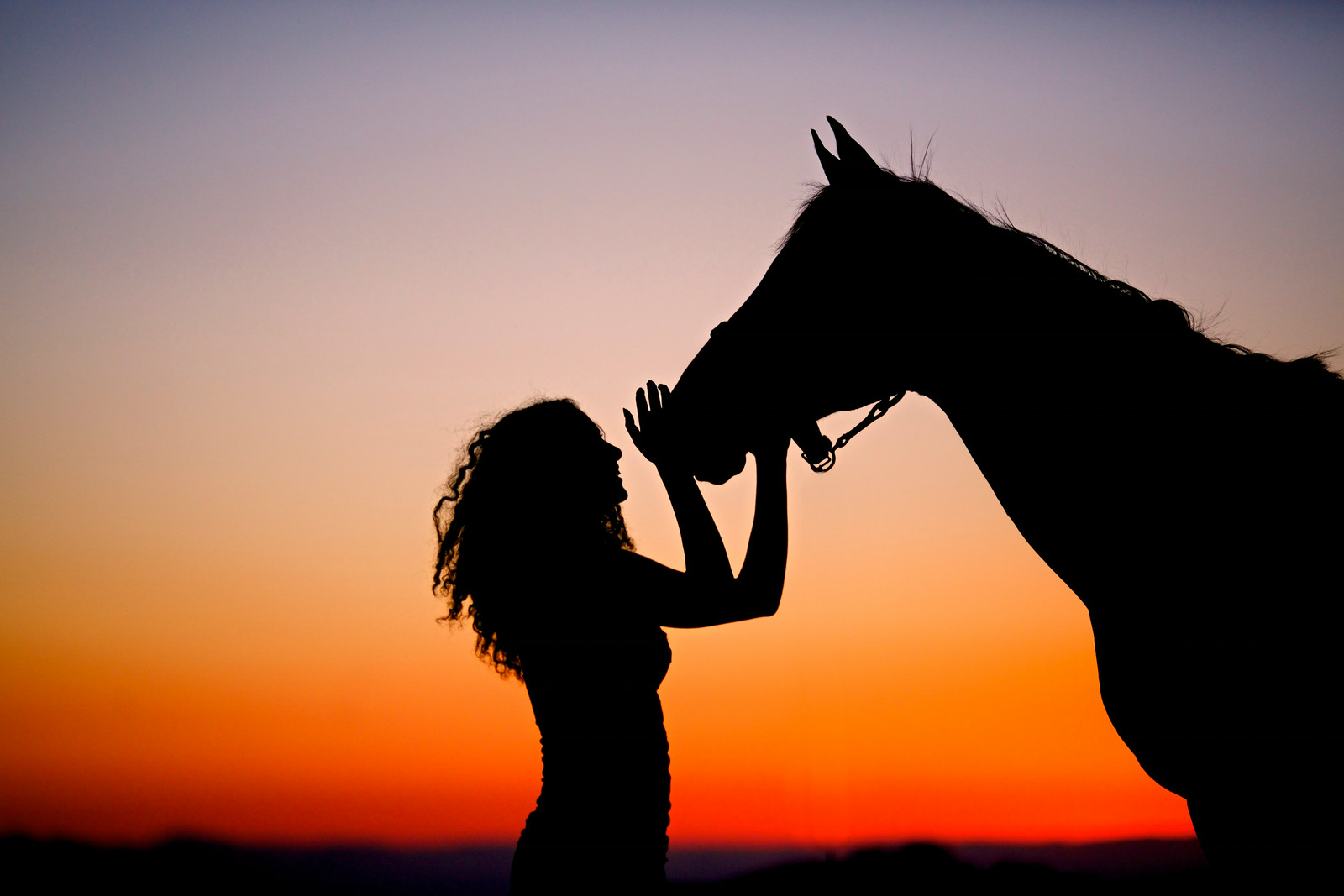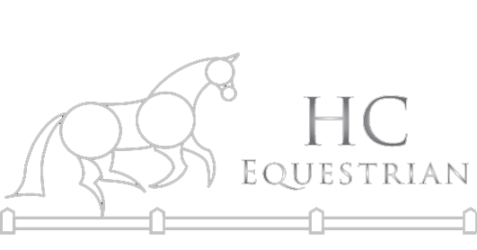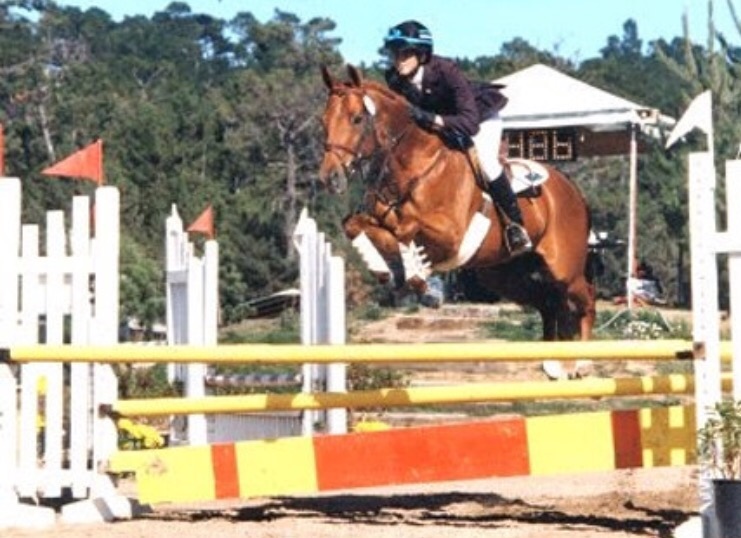I was raised as an eventer. I didn’t have religion at home, so eventing took the place of instilling virtues in me that I’m guessing non-horse people get at church. Those of us raised in an eventing barn are lucky enough to have had all these experiences and can take them into other facets of our lives.
Toughen up. We rode in all weather conditions, no matter what. Weather won’t stop an event, so don’t let it stop your ride. Downpours? A good time to practice riding with wet and slippery tack. Extreme heat? Better practice your electrolyte recipe. Windy? A chance to practice your ability to adapt should your jump blow over on your approach. Aww, you break your finger? Tape it to the next one and keep riding.
Your horse comes first. We learned to care for our horse before ourselves. Your horse didn’t sign up for any of this eventing business, performed for you, and didn’t kill you during your ride, even though he could have. You respect him and put his needs before your own. Doesn’t matter if you are sick from the sun, you hose your hot horse down before turning the hose on yourself.
Help each other out. Cheer on all your stable mates at the horse shows, even if you don’t know them or don’t like them. Did Beth forget to bring her girth to the event? Lend her yours, even if it means you won’t get much warm up. Did Stacy break her arm coming off of Dobbin? Put Dobbin away, give Stacy a ride to the hospital, and add a portion of Dobbin’s care to your routine for the next six weeks. Even if Stacy is not your friend, you still help her and her horse.
Volunteer. Event organizers aren’t in it for the money. Respond to their plea for jump judges. Lots of volunteers are needed to make sure you can compete, do your share to help someone else compete. Remember to thank the volunteers for their time at the horse shows.
Learn to be thrifty. Arrange to share a hotel room with three of your stable mates. Make your own bandages. Do your own braids. Repair track instead of replacing it. Don’t spring for shipping boots, you’ve already got standing wraps. Add some bell boots and they are now shipping wraps too.
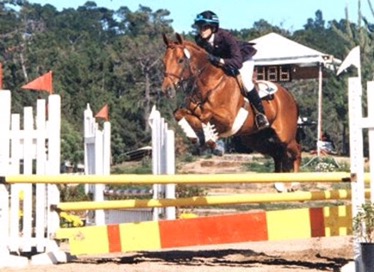 Here I am competing as a teen. Check out my sweet second hand tack. My saddle was purchased for $65, breastplate for $3, girth cover for $1. My second hand jacket was a man’s coat I had tailored.
Here I am competing as a teen. Check out my sweet second hand tack. My saddle was purchased for $65, breastplate for $3, girth cover for $1. My second hand jacket was a man’s coat I had tailored.
Be a barn rat. This is where your horsemanship will come from. Watch and ask questions about what others are doing in the barn. Not only will you learn about horses, but you will learn how to talk to people. This is a great way to learn what you didn’t know you had to learn.

Don’t let any learning opportunity pass you by. Attend every clinic in your area. Even if you can’t ride in the clinic, you will learn from auditing. Go to association meetings, even if you think all the topics will be over your head. Watch horse shows to see what more advanced riders do. Read books, subscribe to magazines, watch videos.
Be prepared. Train a level above your competition level. School the cross country cost before you sign up for an event at that venue. Take everything you own to the event. Bring spare tack, including a spare set of shoes for your horse. Safety check your tack regularly. Have that first aid kit (human and horse) and tool kit ready. Bring sunscreen and rain gear. Plan for contingencies and don’t count on anyone else to bail you out if you weren’t prepared.
Be observant. Scan the fence line for broken rails whenever walking around. Be in the lookout for doors, gates, and lids inadvertently left open. Notice if one of the horse’s isn’t eating hay, or is starting to show signs of illness. Make sure to act on what you see. Report or fix the broken fence, close what’s been left open. Call the trainer and owner of the affected horse and care for the horse until you are relieved.
The trainer’s word is gospel. Do what your trainer tells you to do, she has your best interest at heart. The trainer is like the pastor of a church with tighter clothes and worse language. Hope that you haven’t joined a whack-a-doo cult, where the leader is trying to kill you and take your money. If so, I hope the others in your community will help you get out.
Theses tenants are the cornerstones of developing grit, community, and resourcefulness. At my high school graduation party my parents thanked my trainer, Sarah Vernlund, for raising me. I had spent more Thanksgivings with Sarah than I had with my parents in the previous six years because that’s when the last event of the year was held. I love the person that I am today because of these lessons, and as a trainer myself, my hope is to instill these values in my students as well. If they become better riders, that’s icing on the cake.
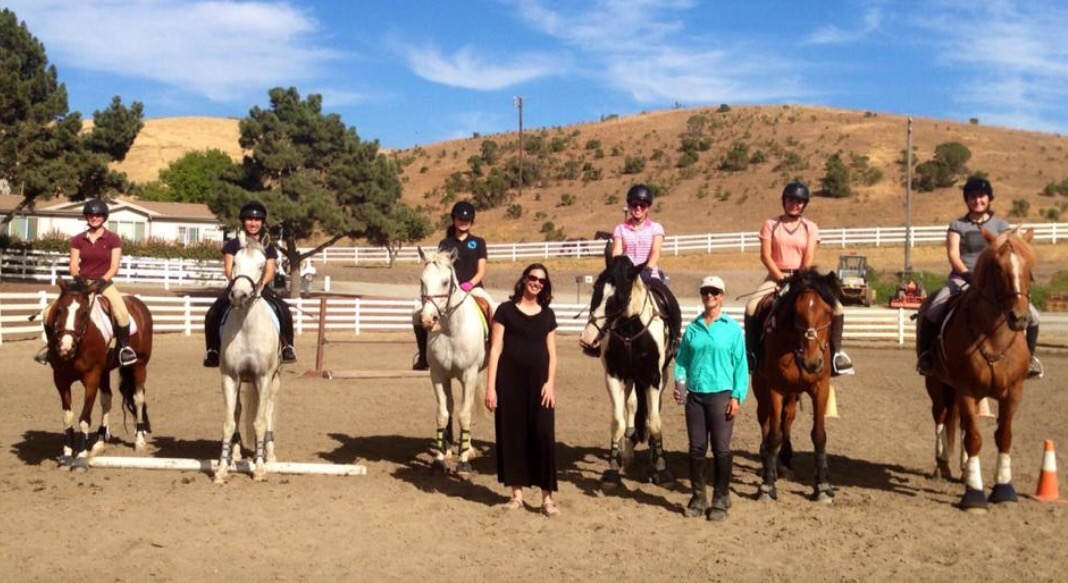 That’s me in the black dress when I was 8 months pregnant. Sarah Vernlund is on foot next to me. Sarah taught my students while I was on maternity leave.
That’s me in the black dress when I was 8 months pregnant. Sarah Vernlund is on foot next to me. Sarah taught my students while I was on maternity leave.
